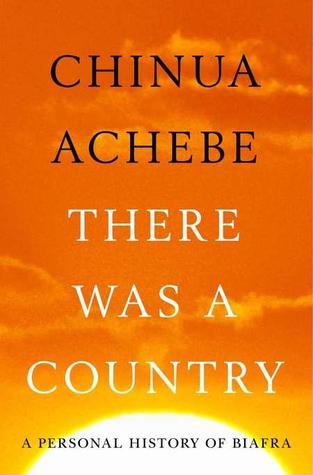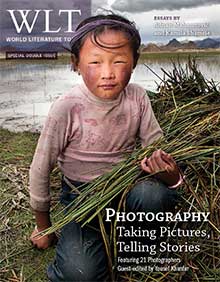There Was a Country: A Personal History of Biafra by Chinua Achebe
New York. Penguin. 2012. ISBN 9781594204821
 For those who already know the writer of Things Fall Apart (1958), Chinua Achebe’s memoir, There Was a Country, will emphasize and elucidate certain intricate or fuzzy details of his already well-known life. This new work is not made of the mnemonic energy of grand autobiography but of the subtle and graceful power of Achebe’s taut prose, his mastery of the form and economy of memorable language. Achebe does chronicle and preserve for us a powerful memoir of a lost and ambiguous time. Achebe sets the score of his life’s story in the rise and fall of another country—the republic of Biafra—and one of the most brutal civil wars of the twentieth century.
For those who already know the writer of Things Fall Apart (1958), Chinua Achebe’s memoir, There Was a Country, will emphasize and elucidate certain intricate or fuzzy details of his already well-known life. This new work is not made of the mnemonic energy of grand autobiography but of the subtle and graceful power of Achebe’s taut prose, his mastery of the form and economy of memorable language. Achebe does chronicle and preserve for us a powerful memoir of a lost and ambiguous time. Achebe sets the score of his life’s story in the rise and fall of another country—the republic of Biafra—and one of the most brutal civil wars of the twentieth century.
There Was a Country is structured as a four-part movement of stories. It seems to correspond with the four elemental cycles of Igbo life and experience on which the balance of that world is consecrated. Achebe establishes the moment of his origins in the part he titles “Pioneers of a New Frontier.” It is the story of his own father’s transition from an orphan to a missionary teacher, one of the pioneers of Christian missionary education and evangelism in Igboland. We certainly suspect that we have heard that story before of Isaiah Achebe and his generous uncle, the sagely Ozo Udoh Osinyi, who had provided the early Christian missionaries in Ogidi with their first hospitality. However, Achebe fleshes out the fragments of that story a bit more in this memoir by providing a more dialectical interrogation of his own place within that relationship. We also see a bit more of Achebe’s mother in this memoir—just a glimpse, enough to give us a picture, in the kola nut tree incident, of her strength and resolve, and the forge from which Achebe claims his own moral consciousness: “It is her peaceful determination to tackle barriers in her world that nailed down a very important element of my development—the willingness to bring change gently.” Here, we have Achebe’s philosophical measure of himself as an incrementalist rather than a revolutionary intellectual.
There Was a Country ruminates powerfully on the devastating civil war in Nigeria in which Achebe served as war emissary for the secessionist republic of Biafra. He treats this subject of war and peace in parts 2 and 3 of the memoir. Part 4 explores the difficulties and contradictions of postwar Nigerian society. There is no nostalgia for these events, only a powerful sense of tragedy. We sense the deep scars of the war on Achebe in this melodic, threnodic, but measured narrative. There Was a Country offers us a powerful story interlaced with poetry, of a time of innocence that quickly dissolved into the postcolonial iron years. It is a great gift from one of the giants of the twentieth century, and it will add to the debate on the situation of Africa in the postcolonial moment, seen through the steady eyes of an inspired witness.
Obi Nwakanma
University of Central Florida

